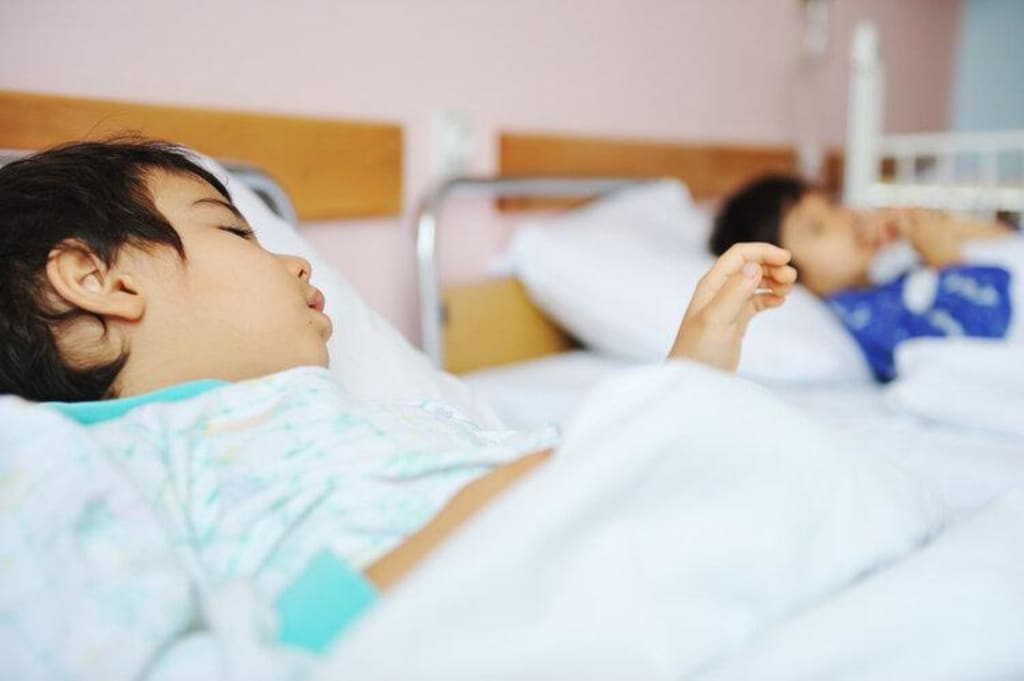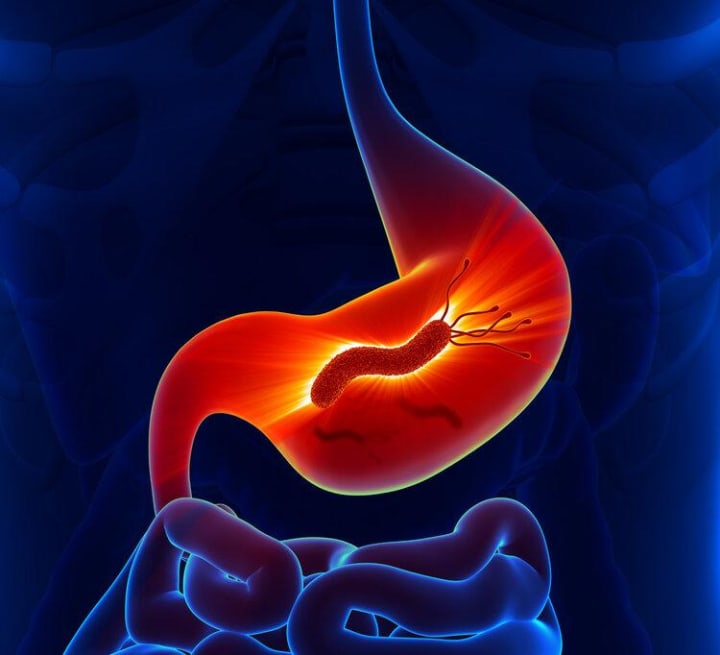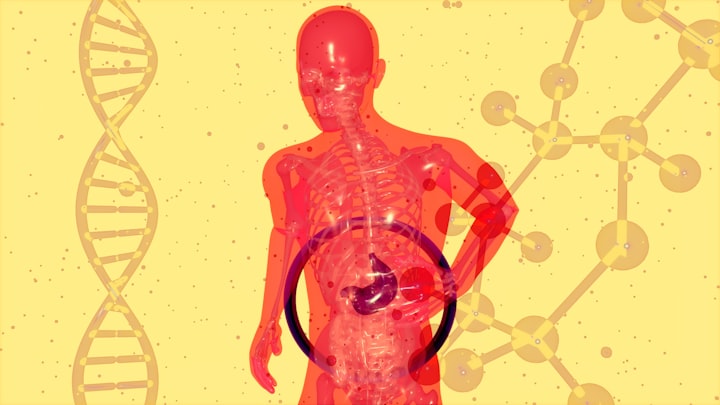Helicobacter pylori does not get rid of the old recurrence?
Teach you 4 ways, or can be completely sterilized

"Doctor, I tested for H. pylori a few days ago, my family didn't pay attention to it before, they all shared a meal at the table, is it now necessary to check for both adults and children?"
Backstage received a private letter from a fan, nowadays it is not uncommon to find out H. pylori, is the most powerful bacteria inside the stomach, H. pylori may be infamous, but it is also one of the biggest killers of stomach cancer.
A. It is confirmed: H. pylori is the biggest real culprit of stomach cancer
What are Helicobacter pylori (Hp)? Although H. pylori were only discovered in the 1990s, it has coexisted with humans for a very long time, at least 5,300 years ago. It is called H. pylori because it is found in the "pylorus" of the stomach, on the lower left side of the stomach, and has a spiral shape, resembling a long rod, hence the name.
Hp is classified as a Class I carcinogen by the World Health Organization. When the stomach is invaded by H. pylori, the stomach is stimulated and the gastric mucosa is harmed, causing inflammation, and when the bacteria multiply in the body, the inflammation will further develop into a gastric ulcer.
In 2021, a study in The Lancet on the incidence of gastric cancer in China pointed out that H. pylori were the main cause of high gastric cancer in China, with an infection rate of 94.4% among patients with non-cardia gastric cancer.
H. pylori can be transmitted through oral-oral, fecal-oral, and water sources, and the Chinese diet has increased the likelihood of saliva transmission at the dinner table, with the situation of "one person infected, the whole family infected".
Second, if someone in the family was found to have H. pylori, should children be checked?
Because Chinese families like to eat together around the table, children and adolescents are often at high risk for H. pylori.
A recent paper on H. pylori infection in children and adolescents worldwide, published in a sub-publication of The Lancet, points out that the overall prevalence of Hp in children is currently 32.3%, and the main reasons for the high infection rate includes sharing rooms with family members, mother's H. pylori infection, having a sibling with H. pylori infection, sharing meals with an infected person, or eating unclean food, drinking unboiled, untreated water Drinking water that has not been boiled or treated.
The prevalence of H. pylori infection in children is extremely high, does this mean that children should adhere to H. pylori?
According to the 2015 China Expert Consensus on HP Infection Diagnosis and Treatment: children under 14 years of age do not need to be tested and treated for H. pylori if they are asymptomatic.
Why do so many people not need to be tested and treated when children are the main "target" population for H. pylori?
H. pylori is not as scary as you think, according to clinical experience, in children infected with Hp, the occurrence of serious disease is very rare, most infected people do not have obvious symptoms, but the eradication of Hp in children, but the infection rate will be significantly higher. In addition, children themselves have a certain clearance rate, which will be cleared on their own as they develop.
In addition, there are not many drug options suitable for the treatment of H. pylori in children, and the side effects are greater, and children have poor compliance with medication, which can easily lead to failure and secondary bacterial resistance through drug therapy. Therefore, it is not recommended that children be tested and treated for H. pylori if not necessary.
3. Should other adults in the family be screened and eradicated?
If an adult in the family is suspected of having H. pylori infection, should the whole family be screened and eradicated?
Once a person is found to have H. pylori infection, they should be screened for H. pylori infection with a carbon breath test as a family unit, and it is recommended that all adults in the family with H. pylori infection should be eradicated at the same time. For some special populations, such as pregnant women, testing and treatment are recommended after delivery; for those over 60 years of age, the pros and cons are weighed on a case-by-case basis.

Carbon 13 and carbon 14 breath tests are more commonly used and can effectively detect more than 95% of H. pylori.
For those infected with H. pylori detected, China now mainly recommends quadruple therapy - bismuth + PPI + 2 antibacterial drugs for 10-14 days. After the standardized treatment, it is usually necessary to recheck the urea breath test, and if the result is negative, then eradication is successful. According to statistics, the eradication rate of H. pylori can reach 90%-95% with a standardized course of treatment.
Fourth, how to kill H. pylori cleanly?
Some infected people worry that one treatment is ineffective, but instead the bacteria become resistant and even worse to deal with. So how can infected people improve the clearance rate?
1, the first treatment must adhere to the drug
The first treatment of Helicobacter pylori standardization is very important, the first treatment of patients must strictly comply with the 10 - 14 days of standardized treatment, and daily doses of antiviral drugs, otherwise it is easy to produce drug resistance, increasing the difficulty of treatment afterward. If the one-time treatment does not work, you must 3-6 months for another treatment.
2. Separate meals and disinfect them well
If someone in the family is infected with H. pylori, it is best to change the form of meal sharing, the use of common chopsticks, and common spoons to eat, not pinch each other's food, stop feeding children by mouth, pay attention to the cleanliness of the dishes, and timely disinfection.
3, dietary hygiene to pay attention to
Good hygiene habits are also important, before and after meals, cleaners should wash their hands, and vegetables, fruits, and vegetables should also be fully washed before consumption, half-cooked food, such as sashimi, beef, etc., to minimize consumption, do not drink cold water, do not eat too hot, too spicy things, to avoid stimulating the gastric mucosa, reducing the resistance of the stomach.
4. Do not drink and smoke during medication
It should be emphasized that infected people should avoid smoking and alcohol during the medication. These behaviors can reduce the efficacy of the medicine and at the same time stimulate the stomach, causing incalculable side effects and, in serious cases, may produce life-threatening disulfiram reactions.
H. pylorus is a major culprit in the development of gastric cancer, and since infection is mostly asymptomatic, it is recommended that high-risk groups should have regular annual reviews of H. pylori and gastroscopy to prevent serious lesions from developing.






Comments
There are no comments for this story
Be the first to respond and start the conversation.